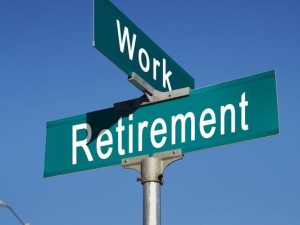Dear Liz: A lot has been written about how much can safely be withdrawn from a balanced investment portfolio so that it will last a lifetime. A popular strategy is to withdraw a percentage, say 4%, in the first year and then increase that withdrawal each subsequent year by the rate of inflation.
What are your thoughts on an alternate strategy of withdrawing a fixed percentage, say 4%, at the beginning of each year? This has the disadvantage of providing a more variable income stream year to year but has the advantages of simplicity and it can never deplete the portfolio to zero.
Answer: Many retirees would find it hard to cope with incomes that swing wildly from one year to the next. One way to address that volatility is to ensure that retirees have enough guaranteed income — through Social Security, pensions and annuities — to cover their basic, must-have expenses. Retirement plan withdrawals then would provide for their “wants,” such as travel, meals out and so on.
Cutting back on the nice-to-haves isn’t easy, but it’s better than not having enough money to pay the mortgage or buy groceries.
This approach is the core of the “Spend Safely in Retirement Strategy,” created by retirement researchers Wade Pfau, Joe Tomlinson and Steve Vernon with the help of the Society of Actuaries and the Stanford Center on Longevity.
The strategy suggests maximizing Social Security and basing withdrawals on the IRS’ required minimum distribution percentages. Reports detailing the strategy and the research behind it are available on both organizations’ websites, and Vernon’s book “Don’t Go Broke in Retirement” explains the strategy in detail.
Of course, trying to eliminate any possibility of running short means that you may die with a whole lot of unspent money. That may be great news for your heirs, but sad for you if you denied yourself excessively while you were alive. Finding the right balance between security and spending is tough, to say the least.
 Today’s top story: The mental health risks of retiring. Also in the news: Prepare your business finances now in case of natural disasters, a new episode of the Smart Money podcast on achieving your dreams, and why you should switch to online invoicing.
Today’s top story: The mental health risks of retiring. Also in the news: Prepare your business finances now in case of natural disasters, a new episode of the Smart Money podcast on achieving your dreams, and why you should switch to online invoicing. Today’s top story: 5 ways businesses can get ahead of stalled supply chains. Also in the news: What you need to know about Medigap Plan A, traveling without a vaccine, and questions to answer before buying a house with a friend.
Today’s top story: 5 ways businesses can get ahead of stalled supply chains. Also in the news: What you need to know about Medigap Plan A, traveling without a vaccine, and questions to answer before buying a house with a friend.  Today’s top story: 5 things small businesses need to know about the Metaverse. Also in the news: Grads left behind $3.7B in free college aid in 2021, buying your next used car online, and why you should teach your kid to invest while they’re still a kid.
Today’s top story: 5 things small businesses need to know about the Metaverse. Also in the news: Grads left behind $3.7B in free college aid in 2021, buying your next used car online, and why you should teach your kid to invest while they’re still a kid.